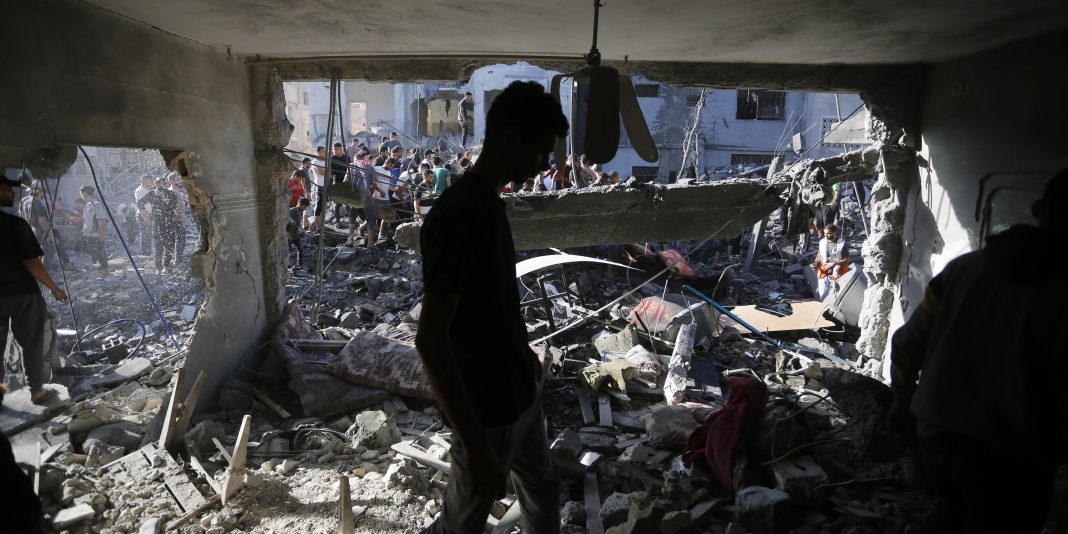Introduction:
The escalating attacks between Israel and Hezbollah have raised concerns about the possibility of a wider regional conflict. Hezbollah, an Iran-backed Shia group allied with Hamas, has been engaged in a low-level war with Israel since the Gaza conflict began. With Hezbollah possessing a significant arsenal of rockets and missiles, they have vowed to continue their attacks as long as the war persists.
Hezbollah’s Rocket Attack and Israel’s Response:
Over the weekend, a rocket attack originating from Lebanon killed 12 civilians in the Israel-controlled Golan Heights. Israel’s foreign minister condemned the attack, stating that it “crossed all red lines” and warned of an impending all-out war against Hezbollah and Lebanon. However, Hezbollah denied responsibility for the strike.
Escalation of the Conflict:
The conflict between Israel and Hezbollah has been escalating for weeks. Israel has increased airstrikes targeting the group, and Israeli officials have openly discussed shifting their focus from Hamas to the more powerful Hezbollah. This shift in attention has raised concerns about the potential for a wider regional conflict.
The Role of the United States:
The United States has been deeply involved in the region, providing extensive military aid to both Lebanon and Israel. Despite pouring billions of dollars into Lebanon’s military and training its troops, Hezbollah remains the dominant force in the country and wields significant influence in the government. The U.S.’s support for Israel’s actions in the Gaza war has only strengthened Hezbollah’s support among non-Shiite Lebanese.
The Impact on Lebanon:
Lebanon has been facing multiple crises, including the Covid-19 pandemic, a large refugee population, systemic corruption, and the devastating explosion in Beirut. These challenges have caused Lebanon’s economy to collapse, with a significant portion of the population living in poverty. The Senate Armed Services Committee has warned that Lebanon is on the verge of becoming a failed state, which further undermines its ability to counter threats like Hezbollah.
The Risk of a Wider Regional Conflict:
A wider war between Israel and Hezbollah would have catastrophic consequences for Lebanon and the region as a whole. It could potentially involve other countries such as Iran, Iraq, Syria, Turkey, Yemen, and the United States. The Biden administration has been making diplomatic efforts to defuse tensions and prevent a conflict that could have terrible consequences for the Middle East.
The Biden Administration’s Dilemma:
The Biden administration finds itself in a difficult position, trying to prevent a wider war while also assuring Israel of its continued military support. Despite criticizing Israel’s indiscriminate bombing in Gaza, the U.S. has maintained its support for Israel throughout the conflict. This unwavering support has been criticized for enabling Israel to escalate its actions against Hezbollah, risking a wider regional conflict.
The U.S.’s History in Lebanon:
The United States has a complex history in Lebanon, including past interventions and bombings attributed to Hezbollah. The U.S. has provided extensive military aid to Lebanon, including arms, training, and intelligence. It has also maintained a small military presence in the country, conducting secret operations against Sunni terror groups.
Conclusion:
The escalating attacks between Israel and Hezbollah pose a significant risk of a wider regional conflict. The United States, as a key player in the region, has been trying to defuse tensions while also supporting Israel. However, the situation in Lebanon remains unstable, and the risk of a catastrophic war looms large. Efforts to find a diplomatic resolution are crucial to prevent further suffering and protect the interests of all parties involved.


